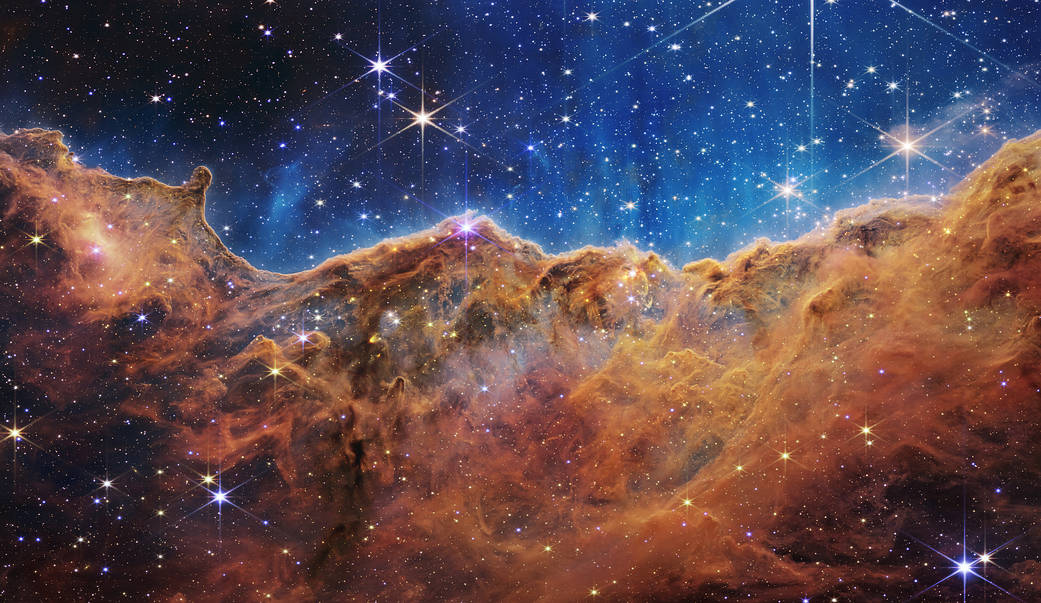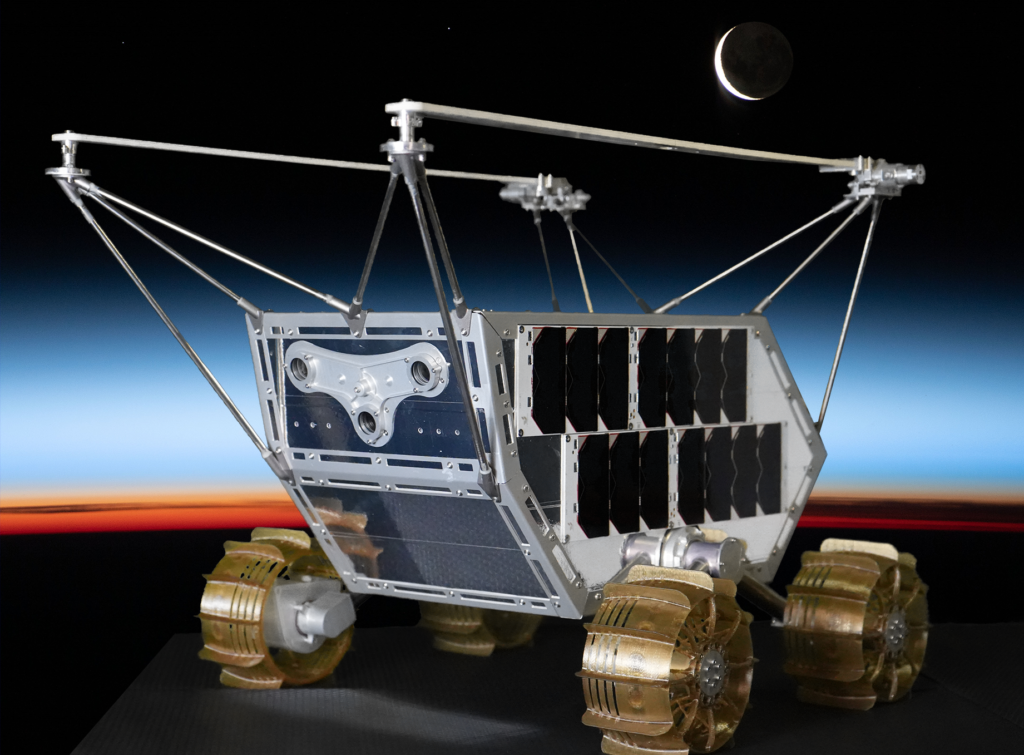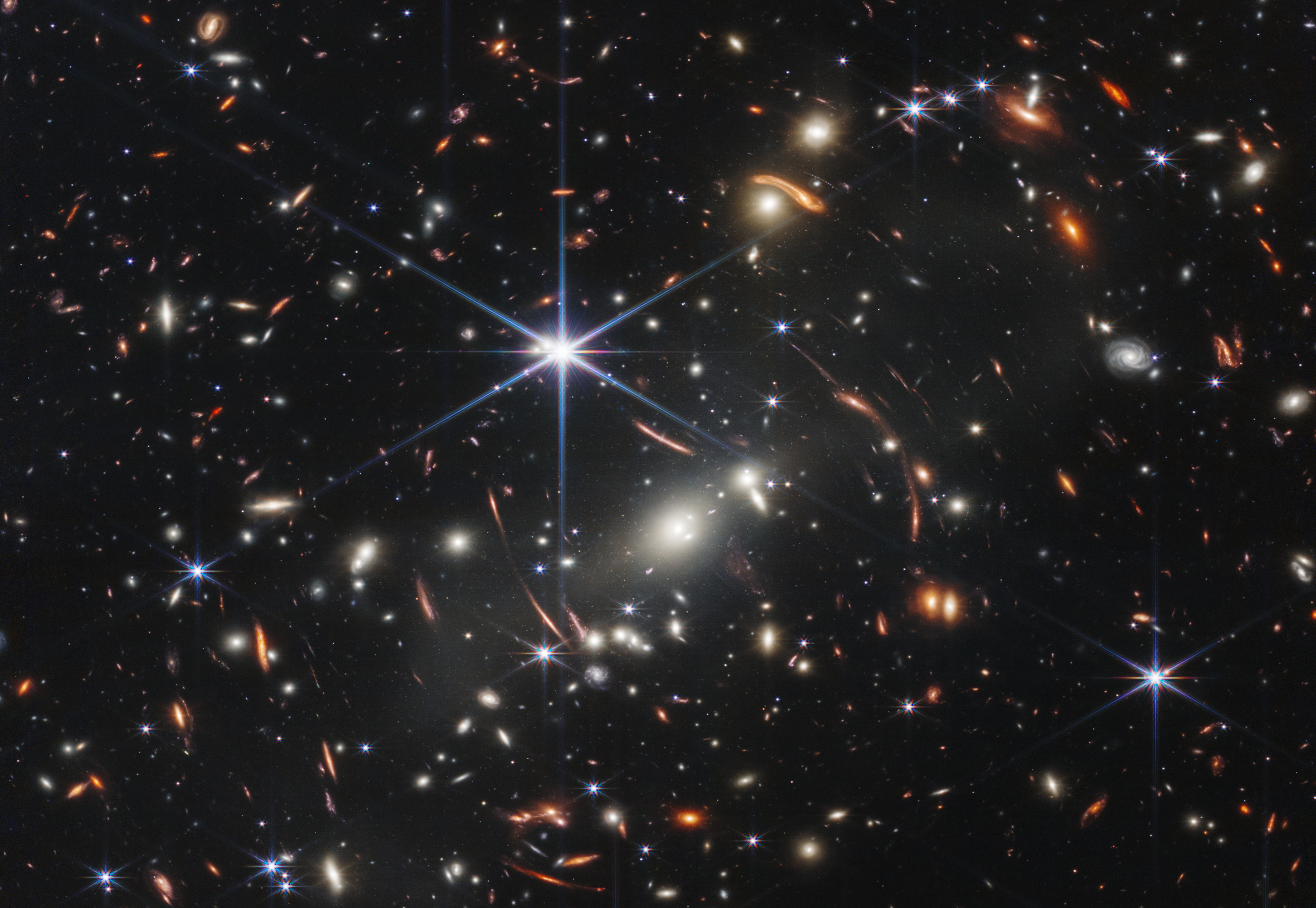Hello and welcome back to Max Q. In this issue:
- The first images from James Webb Space Telescope are here
- Lunar Outpost eyes up moon markets
- News from ABL Space Systems, Skyrora and more
By the way…we’re right around the corner from TC Sessions: Robotics, a full-day digital gathering of some of the world’s leading founders, technologists, engineers, researchers and investors in robotics and AI! Register and learn more here.
OK, on to the news.
The first images from James Webb Space Telescope are here and they do not disappoint
James Webb Space Telescope (JWST) is one of the most exciting astronomical missions in years. With JWST, scientists are hoping to learn more about the universe, from star formation to black holes to exoplanets.
This week, NASA released the first five images from the optical instrument and they did not disappoint. The first image, revealed by President Joe Biden, is a sublime photo of the cluster SMACS 0723. As NASA Administrator Bill Nelson put it, “If you held a grain of sand on the tip of your finger at arm’s length, that is the part of the universe that you’re seeing, just one little speck of the universe.”
Check out this story on what the other four images tell us about the universe and this deep dive from Devin Coldewey into just how a spacecraft a million miles away manages to send dozens of gigabytes of data back to Earth.

Image Credits: NASA (opens in a new window)
Lunar Outpost eyes up moon markets
I caught up with Lunar Outpost CEO Justin Cyrus a few months after the company closed a $12 million seed round, led by Explorer 1 Fund with participation from Promus Ventures, Space Capital, Type 1 Ventures and Cathexis Ventures.
Lunar Outpost is developing rovers and other technologies for terrestrial and space applications, and it already has a handful of space missions lined up for 2023 and beyond. For the first mission, Lunar Outpost will send a 10-kilogram rover, called the Mobile Autonomous Prospecting Platform (MAPP), to the moon’s south pole on a mission in partnership with Nokia and Intuitive Machines in early 2023. The company is also sending a rover to explore the mysterious Reiner Gamma feature on the moon in a fully funded mission for NASA, also in partnership with Intuitive Machines. To top it off, it’s part of a team that includes Northrop Grumman, Michelin, AVL and Intuitive Machines that’s bidding on a contract to build a crewed lunar terrain vehicle for NASA.
“We saw our competitors starting to try to catch up and we felt like this funding can not only be utilized to further differentiate ourselves, and dig a little bit of a moat, if you will, but also accelerate our commercialization timeline for cislunar space,” Cyrus said.

Image Credits: Lunar Outpost (opens in a new window)
More news from TC and beyond
- ABL Space Systems conducted a successful static-fire test of the RS1 rocket from Kodiak, Alaska’s Pacific Spaceport Complex, CEO Harry O’Hanley said.
- BlackSky was awarded $4.4 million from the U.S. Intelligence Advanced Research Projects Activity (IARPA) for machine learning tech integral to IARPA’s Space-based Machine Automated Recognition Technique Program.
- Dawn Aerospace was awarded €1.4 million ($1.4 million) from the European Commission to further develop its hydrazine-replacement propulsion technology.
- The European Space Agency’s Vega C rocket had a successful first flight from French Guiana, with the launch operated by Arianespace and the vehicle designed by prime contractor Avio. Arianespace said it’s targeting four launches per year.
- ESA has officially terminated its cooperation with Russia’s Roscosmos on the ExoMars rover mission.
- Rocket Factory Augsburg fired its Helix engine for 74 seconds, bringing the engine’s long-duration hot-fire campaign to an end. Next up is the integrated system test, the company said.
- Rocket Lab launched the first of two missions for the U.S. National Reconnaissance Office. It’s aiming to launch the second mission just 10 days later, the fastest launch cadence for the company so far.
- Roscosmos terminated its head Dmitry Rogozin on the same day that the Russian space agency and NASA said they would exchange astronaut seats on missions to the International Space Station.
- Skyrora has opened a 55,000-square-foot rocket engine factory in Scotland, which will power the company’s inaugural launch vehicle, Skyrora XL.
- SpaceX launched over two tons of cargo to the International Space Station, including a number of very cool scientific experiments and a NASA instrument that will measure dust and dust cycles, an important variable to model future climate scenarios and ecological phenomena like snowmelt and algae blooms.
- SpaceX’s Super Heavy booster had a little, er, hiccup when the engine spin-start test ended in a fiery explosion.
- Space Capital released its quarterly report on space sector investing, finding that there was another $6.1 billion poured into 92 companies in the second quarter of this year. The VC firm said it did not believe the industry was at “existential risk” despite dire macro economic conditions.
- Virgin Galactic is opening a new manufacturing facility in Arizona, which it says will have the capacity to produce six spaceships per year.
Image of the week

Image Credits: NASA, ESA, CSA, STScI
Come on…how could I not choose the deep-field landscape from JWST?! As an aside, check out this cool story from Mary Beth Griggs on why it looks like there’s so much lens flare in this image (spoiler: it’s not lens flare).
Bonus JWST-related links:
This cool tool from John Christensen that compares the images from JW to those taken by the noble Hubble Space Telescope. It really drives home just how crazy advanced is the new optical instrument.
A Reddit user made a video showing where, exactly, the “Cosmic Cliffs” are located in the universe. It’s jaw-dropping.
Max Q is brought to you by me, Aria Alamalhodaei. If you enjoy reading Max Q, consider forwarding it to a friend.















 English (US) ·
English (US) ·